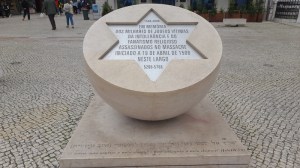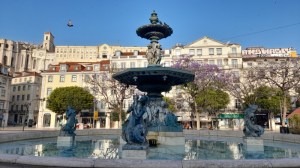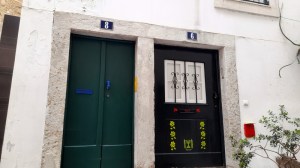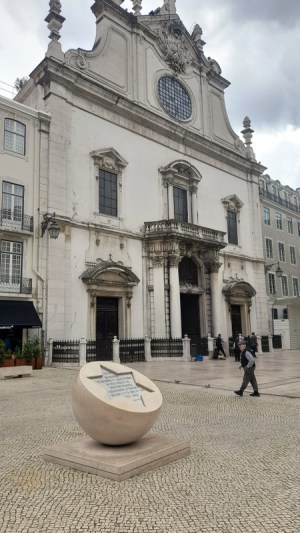Jewish Heritage Tours Portugal
Exploring Jewish Roots: Uncovering Portugal’s Jewish Heritage
Are you ready to embark on an unforgettable journey through Portugal’s rich Jewish history? The “Jewish Tour of Lisbon” invites you to uncover a world of resilience, faith, and enduring culture. This isn’t just a sightseeing tour; it’s an immersive experience where every street, monument, and story reveals centuries of Jewish influence in Portugal.
Why Choose a Jewish Tour of Lisbon?
Lisbon, Portugal’s vibrant capital, is a city where the past meets the present. Its Jewish history dates back over a millennium, shaping the city’s culture, architecture, and identity. Through our Jewish Tour of Lisbon, you’ll walk the historic streets of the ancient Jewish Quarter, known as Judiaria, and explore landmarks that bear witness to the Jewish community’s profound impact on Portuguese society.
Walk Through Lisbon’s Historic Jewish Quarter
Begin your journey in Lisbon’s Judiaria, a district that echoes with stories of the past. Though much was lost during the 1755 earthquake, remnants of Jewish life still linger. Wander through narrow alleys, discover ancient doorways, and uncover the hidden marks left by a resilient community. The Jewish Tour of Lisbon provides insights into the challenges and triumphs faced by this community, especially during periods of forced conversions and persecution.
The Influence of Crypto-Jews
The Jewish Tour of Lisbon delves into the era when Jews were forced to convert but secretly maintained their faith as Crypto-Jews. These courageous individuals, also known as Marranos or Cristãos Novos, practiced Judaism in secret, preserving their traditions through resilience and hope. Understanding their stories adds a powerful emotional layer to your exploration.
The Impact of the Inquisition
No Jewish Tour of Lisbon is complete without confronting the shadow of the Portuguese Inquisition. This dark period saw thousands persecuted for their faith. Visiting landmarks related to this era, including the places where secret worship occurred, helps visitors comprehend the profound bravery and resilience of Lisbon’s Jewish community. These moments of reflection are crucial for understanding the city’s complex history.
Extend Your Journey Beyond Lisbon
While the Jewish Tour of Lisbon is a highlight, Portugal’s Jewish heritage extends across the country. Consider expanding your journey to include these significant destinations:
- Porto: Travel to Porto, a city rich in Jewish history and heritage. The Kadoorie Synagogue, one of the largest in the Iberian Peninsula, stands as a symbol of Jewish resilience and revival. Wander through Porto’s Jewish Quarter and discover the hidden corners that tell tales of a community that endured and thrived.
- Évora: Explore the medieval synagogue and visit the Jewish Museum, where artifacts and exhibits recount centuries of Jewish presence in the region.
- Tomar: Step into the oldest synagogue in Portugal, now a museum, and discover the traditions preserved by this historic community.
Explore at Your Own Pace: Self-Guided Jewish Tour of Lisbon
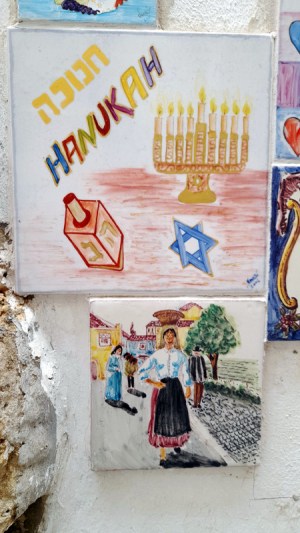 For travelers seeking flexibility, our self-guided Jewish Tour of Lisbon offers an enriching experience at an affordable price. Our detailed e-book, priced at only 9.99 euros, leads you through Lisbon’s historic neighborhoods, including Alfama and Rossio. Discover hidden landmarks, engage with authentic stories, and enjoy the freedom to explore on your schedule.
For travelers seeking flexibility, our self-guided Jewish Tour of Lisbon offers an enriching experience at an affordable price. Our detailed e-book, priced at only 9.99 euros, leads you through Lisbon’s historic neighborhoods, including Alfama and Rossio. Discover hidden landmarks, engage with authentic stories, and enjoy the freedom to explore on your schedule.
The cost of this e-book is less than a fast-food meal but offers a cultural feast that nourishes the mind and soul. Don’t miss the chance to deepen your understanding of Lisbon’s Jewish heritage.
Embark on this extraordinary journey and immerse yourself in Portugal’s Jewish legacy. Our meticulously crafted Jewish tour of Lisbon reveals hidden stories, significant landmarks, and the resilience of a vibrant community. Each step connects you with a history that shaped Portuguese culture and resonates deeply with values of perseverance and hope.
Whether you’re walking through ancient quarters or standing before solemn memorials, this tour is more than an exploration—it’s a meaningful engagement with history. Download our e-book and start your Jewish tour of Lisbon today, embracing the beauty, resilience, and profound stories that continue to inspire.
Recommended Read for Deeper Connection
For those yearning to deepen their understanding, “The Last Kabbalist of Lisbon” by Richard Zimler offers a gripping narrative set in 16th-century Lisbon. This novel vividly portrays the struggles and secret lives of the Jewish community during the Inquisition, adding depth and emotion to your historical exploration.
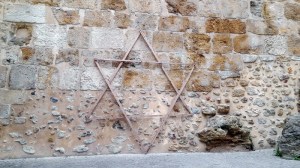
Portugal During World War II: A Haven for Refugees
Portugal’s role during World War II adds another layer to its Jewish narrative. Lisbon became a refuge for Jews escaping Nazi persecution, serving as a crucial gateway to freedom. Visiting sites related to this period during your Jewish tour of Lisbon offers a deeper understanding of the country’s humanitarian legacy.
Start Your Jewish Heritage Journey Today
Embrace the profound stories, resilience, and contributions of the Jewish community with our Jewish Tour of Lisbon. Download the self-guided e-book and begin your journey through centuries of history, courage, and cultural richness.
Each step through Lisbon’s historic streets will connect you with a vibrant legacy that shaped the heart of Portuguese society. Discover, reflect, and honor the enduring spirit of the Jewish community in Portugal.
Are you ready to uncover the hidden layers of Lisbon’s past? Start your Jewish Tour of Lisbon today and walk the paths of history that continue to inspire.
Explore More Destinations in Portugal
- Aveiro: Discover the Venice of Portugal.
- Braga: Explore ancient Roman and medieval landmarks.
- Coimbra: Visit one of Europe’s oldest universities and historical sites.
- Porto: Connect with a rich Jewish heritage through its historical landmarks.
- Lisbon: Continue uncovering Jewish stories in Portugal’s capital.
A Jewish tour of Lisbon isn’t just a walk through history; it’s a profound journey into a legacy of faith, endurance, and cultural influence. Join us in celebrating this remarkable heritage, and let these stories inspire a deeper appreciation for diversity and resilience. Book your journey today and step into a world where history and hope intertwine, offering lessons that resonate across generations.
Embrace the past, honor the memories, and be part of a tradition that continues to shape the future.

